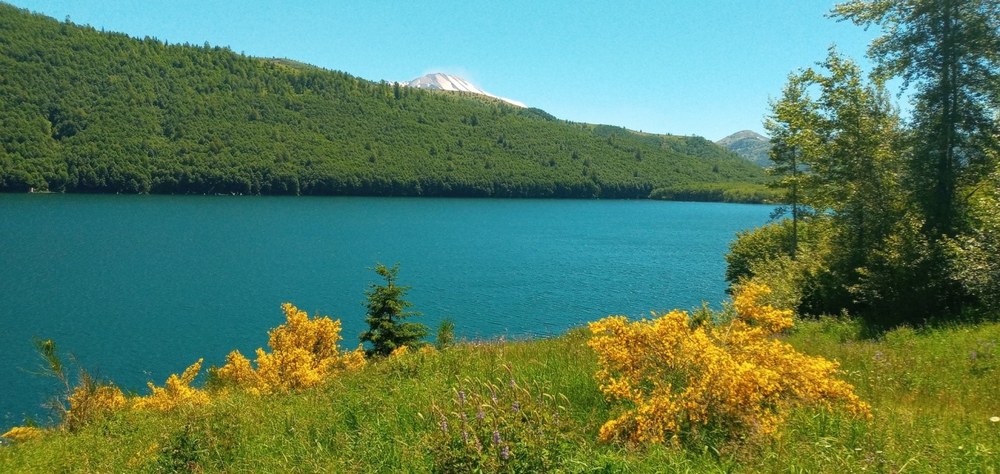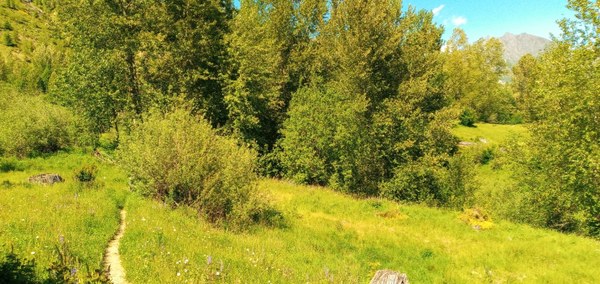
At Mt. St. Helens National Volcanic Monument, Scotch broom is considered a noxious weed, displacing native species and altering natural habitats from open, light-filled systems to dense shrub land where nothing else will grow. The Olympia Mountaineers are actively organizing work parties to eradicate Scotch broom, maintaining the monument’s biodiversity and habitat health.
What is Scotch broom?
Scotch broom - a Class B Noxious Weed - is on Washington state’s watch and quarantine list in most areas. Class B weeds are invasive species limited to portions of Washington state.
Scotch broom is a fast-growing, aggressive, and drought-resistant plant that invades dry hillsides, forest clearings, waterways, dry riverbeds, and scrublands. Scotch broom flourishes in full sunlight (and yes, shade too), surviving in a wide variety of soil conditions from sandy to dry and even rocky, nutrient-poor soils. Left unchecked, Scotch broom creates a monoculture habitat unfit for native flora and fauna.
Managing Scotch broom at Mt. St. Helens National Monument
The Olympia Mountaineers are working closely with Cowlitz County Noxious Weed Control, the Forest Service, and Mt. St. Helens Institute to collaboratively rid the monument of invasive species, such as Scotch broom.
The Olympia Mountaineers focus on mechanical control for Scotch broom eradication, consisting of hand pulling early plants and leaving the roots up to shrivel in the sun. Pulling plants early is important, so the entire root is removed and the plant does not regenerate at a later time.
 Elk Bench Meadow along Coldwater Lake Trail where Scotch broom has been removed.
Elk Bench Meadow along Coldwater Lake Trail where Scotch broom has been removed.
When removing larger shrub-like trees, we utilize different methods. If a shrub is on a slope, the base will be cut using a hand saw. Once cut - if the shrub has seed pods - we remove and bag the seeds for disposal. Removing the seed pods is critical, as Scotch broom seeds can live up to 90 years, surviving most natural phenomena - including fire. Last year our volunteers cut, bagged, and removed more than 40 bags of seed heads weighing 20lbs each.
The Olympia Mountaineers continue to actively manage areas along Coldwater Lake, the Coldwater Science and Learning Center, Elk Bench, and Elk Meadow. Though these areas are showing marked improvement with our continued stewardship presence, we will continue to monitor all previously worked areas for newly sprouted plants.
Want to get involved?
The Olympia Mountaineers will continue to organize volunteer work parties at Mt. St. Helens National Monument. If you would like to participate in a work party, please contact Regina Robinson. Our efforts are truly making a difference; we hope you will join us.
 Regina Robinson
Regina Robinson